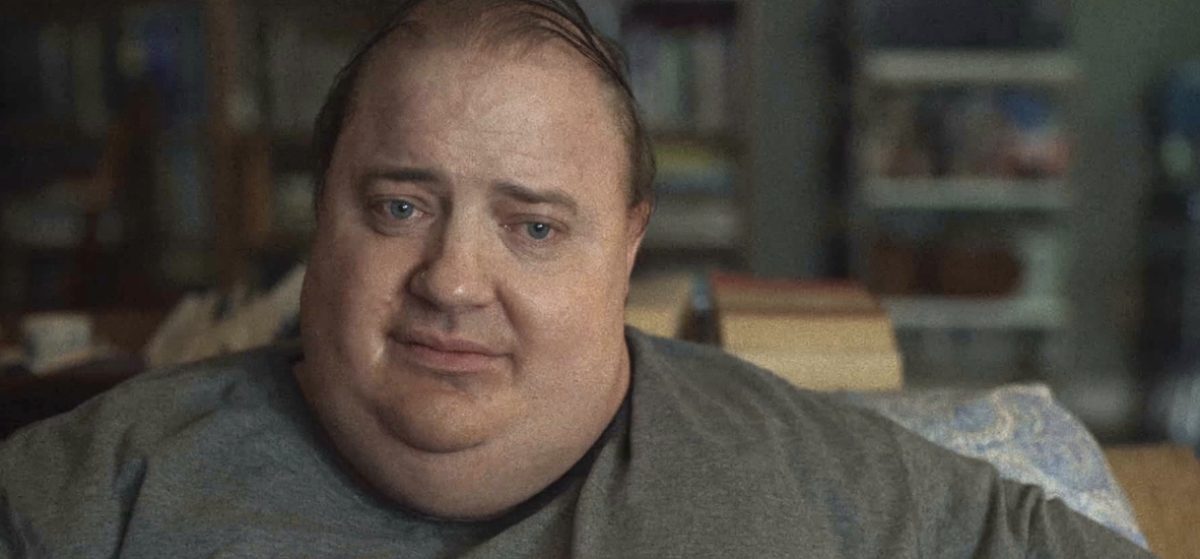Whales, Tales & Research Truths

The Whale by Darren Aronofsky has simultaneously been the subject of critical acclaim, celebration, public scrutiny, and condemnation.
This powerful and immersive film adaptation (of the stage play by Samuel D Hunter) tells the tale of Charlie, a morbidly obese college tutor, who is dealing with grief, isolation, loss and self-loathing, whilst desperately trying to reconnect with his teenage daughter, and staring his own mortality in the face.
Whilst the role of cerebral film critic lies far beyond my intellectual and reflective capabilities, this cinematic offering delves into many complex themes and subjects - from addiction, body-politics, and obesity, to sexuality, identity and self-harm. At its core though, is a fascinating and meandering connection with notions of truth, storytelling, and the costs of constrained imaginations. Through the lens of his daughter’s English essay, Charlie asks us to look at our own lives, and to (re)consider the significance of truth, honesty, deception, and authenticity within our relationships, passions, interests, and work. Using selected quotes from The Whale, I intend to do just that…
"This… Made Me Think About My Own Life”
Stopping short of offering an exhaustive and potentially clumsy film review, The Whale forced me to consider my own life, my own values, interests and career choices. To this end, I couldn’t help but think about the concepts of truth, honesty, authenticity and imagination within academic, social and commercial research… I promise you, that’s not nearly as boring as it sounds!
There is a specific and enduring language that surrounds research - it’s a language of methodology, sampling, validity, epistemology, robustness and rigour. These pillars of knowledge acquisition are central to conducting high-quality research, however protagonist Charlie’s frustration with familiar and formulaic thinking (and writing) is palpable, and something that resonates with me, when I reflect on what it means to me to be a researcher.
“Just Write Me Something Honest”
When I initially attempted to enter the wonderful world of research, I was asked in my second ever job interview: “Can you tell me something you are passionate about?”
And, that question has stuck with me ever since. At its root, it asks for honesty, for full consideration of the truth of your being. It’s an existential debate within itself - exploring who we are, what we care about, what’s important to us, and who we aspire to be. From memory, my response focused on Musical Theatre, Irish Dance, Amateur Sport and Italian food, but the common thread was, and is… storytelling.
The reason I care about qualitative research, is quite simply based on my love of stories. I’m interested in hearing about journeys other than my own, trying to empathetically understand someone’s experience and perspective, making sense of their language, and noticing how they choose to express and convey their point of view. Can I neatly summarise why I enjoy this so much? No… but, I see my role as a researcher being to help people tell their stories, their truths, their experiences, as authentically and honestly as they feel able to.
“I felt saddest of all when I read the boring chapters… that were just descriptions of whales…”
Throughout this film, Charlie repeatedly challenges his daughter, and his students to think creatively, to value their own voices and viewpoints, to engage their imaginations - and to choose truth over superficiality at every opportunity. He regularly bemoans constrained and blinkered writing, and sees opportunity and beauty in storytelling, and thinking differently. After all, what would the world be like if nobody thought remarkable things?
These themes represent key contemporary challenges within qualitative research and methodological debate:
How can we support people in telling their stories and sharing their experiences with as much rich and honest detail as possible?
How do we go beyond superficial description, to really extend our understanding of an issue, phenomenon or problem?
What is the role of imagination, disruptive thought, and creative disobedience in carving out new and engaging approaches to research?
What might be learned by taking a methodological ‘road less travelled’?
These questions are not by any means groundbreaking, but they ask us to consider the value of originality, and to challenge mundane, constrained and safe thinking.
“Do you ever get the feeling that people are incapable of not caring? People are amazing…”
At the heart of all great research… are people. Charlie never loses sight of the magnificence of human beings, despite his own self-loathing, personal demons and psychological struggles. Within research, my experiences have consistently shown me that good things happen at the intersection of personality, passion and persuasion. The ongoing challenge for qualitative researchers is to choose imagination over prescriptive thinking, creativity ahead of constraint, and boldness over blandness.
As Charlie will tell you, what really matters?
“ … Amazing, honest things!”

